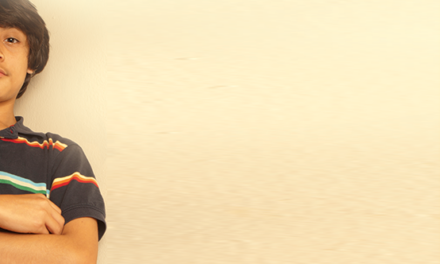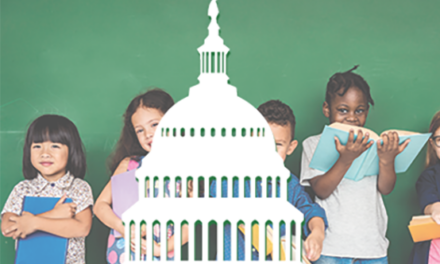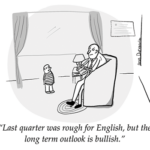What do you believe?
This question will probe at your core, make you wildly uncomfortable, but with a bit of grunt and grit, the answer that emerges has the potential to transform the second half of your school year. When I talk with the graduate students I teach and reflect upon my days with the six- and seven-year-old children in my classroom, it is the question that serves as my litmus test for my interactions and practice. Does what I say, do the lessons I teach, do the learning opportunities I create, match what I believe?
The start of a new year offers us a reboot with our students, colleagues, and administration.
But I rarely hear this question jostled around in college classrooms, faculty lounges, after school meetings, and in interviews with teacher candidates. I think a teacher’s ability to clearly articulate an answer to this question positively correlates with her ability to innovate as she moves students past boundaries that keep them from their own definitions of excellence.
It is easy to say, “I believe in literature circles and reading workshop,” but those are practices not beliefs. As a culture, discussions swarming around the perils of schools often start and stop here. Discussions that stop at practice, invite packaged curriculums that highlight materials and dictate scripts, but beliefs become YOUR script that directs YOUR curriculum that matches YOUR children’s unique way of existing in THEIR world.
So as I sat down to plan for a reboot to a new year, I reflected on how my beliefs direct my practice.
- I believe that children’s learning is intensified and solidified when they play with new knowledge on their own terms and record their learning according to their own understandings and style, so next week, our activities will be open-ended and play-centered. As my children acquire new insights, I will give them a variety of options to record their discoveries and shy away from teacher-made templates that require predetermined recordings.
- I believe that it is incredibly easy to shame a child. I believe teacher-imposed shame leaves a dent in a student’s view of self. Those dents show and shine to outsiders and make them feel that it is OK to shame that child again because he is already damaged, not unlike an old car you treat differently than the shiny ride sitting in your driveway. This belief has charged me to throw out any type of management system that publicly condemns a child and attempts to control instead of support his personal journey. I try to make sure that my first response is, “You seem like you are in a rough spot, what can I do to help?” A child, after all, needs to be loved not “managed.”
- I believe that empathy could very well rescue American education. As parents, who are also teachers, we already have a jump on this, due to our own arsenal of parental missteps. When a child arrives at school in below-freezing temperatures with no coat, I say to myself as a mother, “Yep, I have had those types of mornings too and then struggle to recall what my own child is wearing. Does he have on a coat today?” My practice is to stockpile extra coats, pants, and dry shoes in the closet of my classroom. When a boy in my class slugs another boy who just knocked over his carefully constructed block tower, I think, “Yep, I had a similar temper tantrum this morning when I came in to find all of my tables rearranged and the printer broken, I also don’t like folks messing with my stuff.” My practice is to explain to the boy that I too get frustrated and give him some personal examples, then help him walk through possible strategies that might work better when this happens again, say this afternoon. I also try to have a little empathy with myself. When one of my lessons takes a horrific turn and signals a code red, I try to say, first to myself and then out loud, “Kiddos, I think I really botched this thing up, I need a restart. Are you up for that?”
And that is what January offers us, a reboot with our students, colleagues, and administration.
What beliefs are driving your practice in the New Year?
ABOUT THE AUTHOR

Dorothy C. Suskind
DOROTHY C. SUSKIND a longtime 1st-grade teacher, is now a 5th-grade teacher-researcher at St. Christopher’s School, Richmond, Va.










